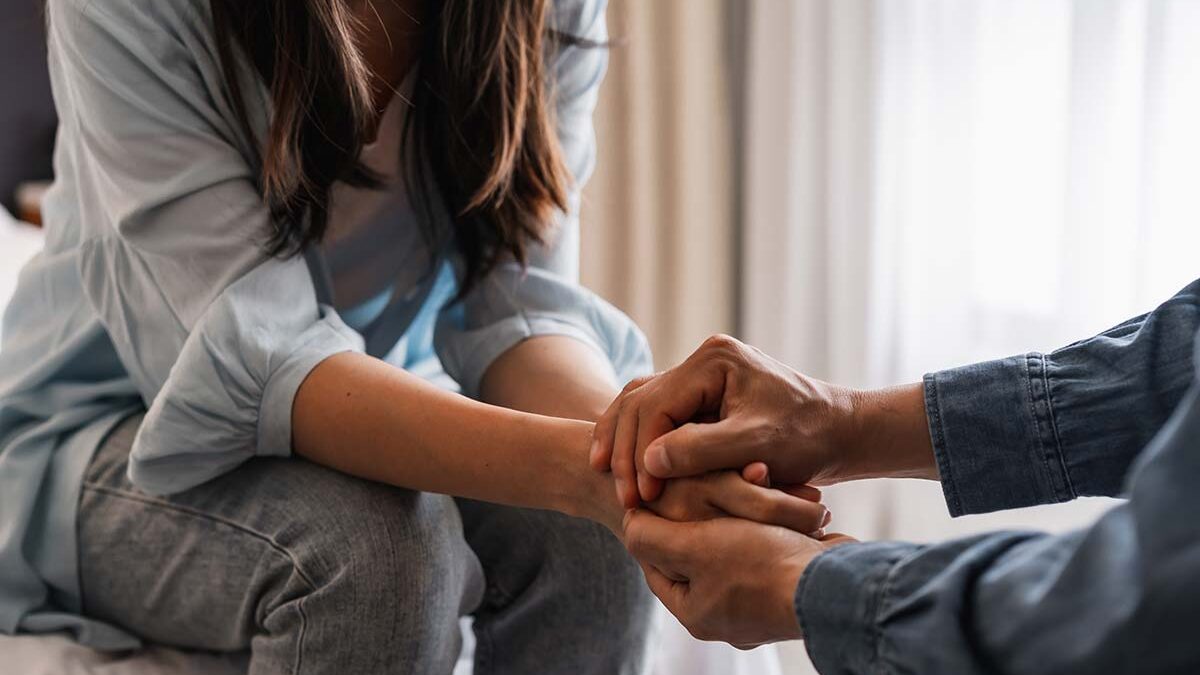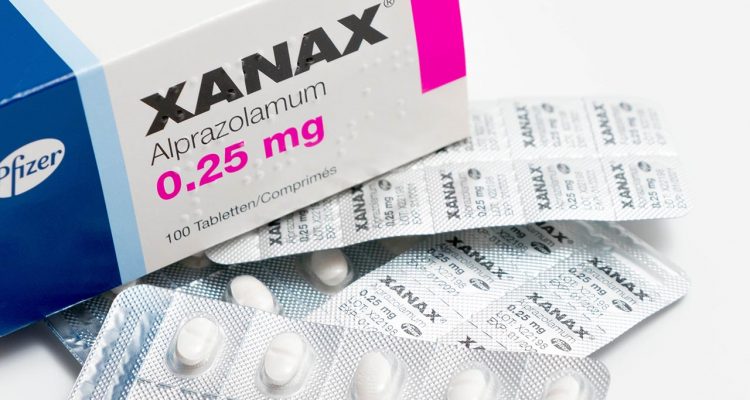Relationships are one area that is severely impacted by addiction, which may wreak havoc on many facets of a person’s life. We shall explore the realm of addiction and its tremendous effects on relationships in this blog post.
This benzodiazepine drug is frequently given for anxiety disorders. Due to its calming effects, it has a high risk for addiction even though it can be useful in controlling anxiety. The effects of a Xanax addiction frequently harm a person’s relationships.
What’s the Value of Couples Seeking Professional Assistance for Xanax Addiction?
Relationships affected by addiction may have trust concerns, communication problems, and emotional upheaval. It’s critical for couples struggling with addiction to get professional assistance. Therapists and addiction specialists can offer direction and support to assist couples deal with the difficulties brought on by addiction. Couples counseling can strengthen a relationship by promoting understanding, promoting healing, and re-establishing trust.
Addiction can have devastating effects on individuals and their relationships, and there are no exceptions to that.
What are the Dangers and Reasons for Xanax Addiction in Couples
There are many possible reasons and risk factors for addiction in relationships. Some people may receive a legitimate medical prescription for Xanax at first but eventually become dependent on it.
Self-medication for underlying mental health problems, a genetic background, and a history of substance misuse within the relationship are some other variables that contribute to substance abuse. Stressful life occurrences like money problems or love problems might also raise the risk of developing a substance use disorder.

What are the Common Xanax Addiction Symptoms and Signs in Couples
Having a solid knowledge of the signs of addiction is a must for everyone. Couples may experience signs such as excessive and frequent usage, withdrawal symptoms while trying to stop, disregarding obligations and commitments, secretive behavior, and a worsening in their physical and mental health. Couples who abuse this drug may experience behavioral changes, mood fluctuations, and more arguments.
What are the Effects of Xanax Addiction on Intimacy, Communication, and Trust
Communication, trust, and closeness within relationships are all significantly impacted by Xanax addiction. Due to drug abuse, one can have a clouded perception and disturbed state of mind, and communication breakdowns frequently happen. The core of any relationship, trust, is weakened by the addicted partner’s erratic and unreliable behavior.
As the focus turns from the partnership to obtaining and taking this drug, intimacy, and affection erode. Both parties may experience feelings of loneliness and isolation as a result of the emotionally distant behavior of the addicted partner.
How to Select a Suitable Rehab Center for Couples
The ideal location for couples to recover from substance use disorders is in a rehab facility. They have a cozy and well-equipped place that supports patients’ recovery from addiction. It’s a safe and proven way of restructuring the behavior and communication of couples who are under the influence of drugs. But first, you need to know who to choose the right rehab center to enroll for a treatment program.
The significance of expert evaluation and diagnosis
Before starting your treatment, you or your partner must undergo screening so that your doctor will know what are the treatment methods and therapies suitable for you. Experts in addiction and mental health can assess the extent of addiction, spot any co-occurring mental health conditions, and choose the best course of treatment. A precise diagnosis guarantees that the rehabilitation program of choice will address the couple’s unique demands and concerns.
Different Xanax Recovery Programs for Couples
For couples struggling with addiction, there are various sorts of recovery programs accessible. An extended stay at a facility that provides intensive therapy and an organized atmosphere is referred to as inpatient rehabilitation. Couples can participate in outpatient programs while continuing to live at home, giving them flexibility but with less rigorous care. Programs for partial hospitalization offer a compromise by enabling couples to go home at night while providing organized therapy during the day. In both individual and group settings, couples counseling is a crucial part of many rehabilitation programs.
Factors to Consider When Choosing a Couples Rehabilitation Program
Selecting the ideal recovery program for couples necessitates serious thought. The experience and credentials of the treatment team, the reputation and accreditation of the facility, the availability of couples-specific therapy, the variety of treatment modalities provided (such as cognitive behavioral therapies or comprehensive approaches), the cost and coverage provided by insurance, and the location and length of the program are some considerations to be made. Finding a program that suits the couple’s particular requirements and tastes is crucial.
The provider of the rehab program is also a critical factor toward the recovery of couples from addiction. It will be easier to achieve a successful and long-lasting recovery if you take the time to research and inquire about the program before enrolling.
What are the Advantages of Couples Rehab

Couples who participate in a Xanax treatment program benefit greatly, which can change their relationship and open the door to long-term recovery. You will experience a holistic way of treatment in rehab centers, and this can help couples regain their trust and healthy relationship.
Increasing communication and re-establishing trust in the relationship
Addiction to this substance frequently undermines communication and trust in a relationship. Couples can reestablish trust by promoting open and honest communication in rehab because it offers a safe and orderly atmosphere. Couples can develop healthy communication techniques, tackle the underlying issues that lead to the addiction, and rebuild any trust that may have been lost through single and couples therapy sessions.
Improved Accountability and Mutual Support in Recovery
Having a companion who understands and supports your recovery path can be very helpful. Recovery is a lifelong struggle. Couples can encourage one another, exchange experiences, and keep one another accountable for their sober goals while participating in an addiction treatment program. The link formed by the common dedication to rehabilitation strengthens the willpower to maintain sobriety.
Taking Care of Co-Occurring Issues and Building a Stronger Foundation for Long-Term Sobriety
Addiction to Xanax frequently co-occurs with other mental health conditions, such as depression or anxiety. Couples rehab clinics provide all-encompassing care that treats co-occurring disorders as well as addiction. Couples can build a strong foundation for long-lasting sobriety and general well-being by undergoing treatment for these underlying issues at the same time.
Overcoming Obstacles and Maintaining Recovery Together
Recovery as a pair has its special difficulties. In this section, we’ll talk about managing interpersonal dynamics throughout the healing process, creating practical coping mechanisms for stressors and recurrence prevention, and creating a happy, supportive life after rehab.
Relationship Dynamics in the Recovery Process: A Navigational Approach
Relationships can undergo substantial changes as a result of recovery. Couples must maneuver these relationships with sensitivity, patience, and understanding. It may be necessary for each spouse to define new roles and boundaries, discover better means of resolving disputes, and adapt to a way of life that supports sobriety. Couples therapy and continuing assistance can assist them in overcoming these difficulties and fortifying their relationship.
Creating Successful Coping Techniques for Relapse Prevention and Triggers
Sobriety can be threatened by triggers and cravings, but couples can work together to build appropriate coping mechanisms. Couples can assist one another in controlling cravings and avoiding relapse by recognizing triggers and putting healthy coping strategies, such as mindfulness exercises or participating in shared hobbies, into place. Resilience through difficult times depends on regular communication and a solid support system.
Together, we are creating an effective and supportive post-rehab life.
For couples, rehab is just the start of their recovery journey. Maintaining a commitment to and effort in your post-rehab life is necessary. Couples can concentrate on preserving healthy routines, participating in well-being-promoting activities, cultivating a supportive social network, and continuing treatment or support group attendance. Couples can build a satisfying and lasting life together by actively fostering their relationship and putting sobriety first.
Couples can benefit a lot from rehab, for instance, it can help them restore the trust and communication with their partners. When a couple undergo rehab, they will have a higher success rate of encouraging each other to be better and get sober. Couples can lay a solid basis for a healthy and joyful life in recovery by overcoming obstacles together and creating efficient coping mechanisms.
